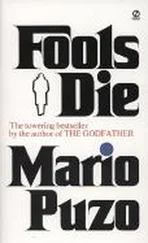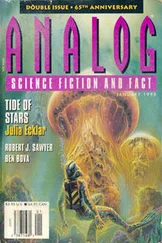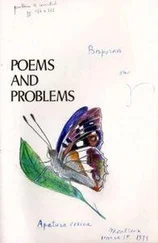Laurence Janifer - Poems are Made by Fools Like Me
Здесь есть возможность читать онлайн «Laurence Janifer - Poems are Made by Fools Like Me» весь текст электронной книги совершенно бесплатно (целиком полную версию без сокращений). В некоторых случаях можно слушать аудио, скачать через торрент в формате fb2 и присутствует краткое содержание. Год выпуска: 1997, Издательство: Dell Magazines, Жанр: Фантастика и фэнтези, на английском языке. Описание произведения, (предисловие) а так же отзывы посетителей доступны на портале библиотеки ЛибКат.
- Название:Poems are Made by Fools Like Me
- Автор:
- Издательство:Dell Magazines
- Жанр:
- Год:1997
- ISBN:нет данных
- Рейтинг книги:4 / 5. Голосов: 1
-
Избранное:Добавить в избранное
- Отзывы:
-
Ваша оценка:
- 80
- 1
- 2
- 3
- 4
- 5
Poems are Made by Fools Like Me: краткое содержание, описание и аннотация
Предлагаем к чтению аннотацию, описание, краткое содержание или предисловие (зависит от того, что написал сам автор книги «Poems are Made by Fools Like Me»). Если вы не нашли необходимую информацию о книге — напишите в комментариях, мы постараемся отыскать её.
Poems are Made by Fools Like Me — читать онлайн бесплатно полную книгу (весь текст) целиком
Ниже представлен текст книги, разбитый по страницам. Система сохранения места последней прочитанной страницы, позволяет с удобством читать онлайн бесплатно книгу «Poems are Made by Fools Like Me», без необходимости каждый раз заново искать на чём Вы остановились. Поставьте закладку, и сможете в любой момент перейти на страницу, на которой закончили чтение.
Интервал:
Закладка:
Poems are Made by Fools Like Me
by Laurence M. Janifer

Illustration by Arthur George
1.
Very few planet-testing assignments are worth reporting on— except, of course, for the tech reports I do have to make. Those are what the Comity pays me very poorly for, and they are still worth writing. With any luck, they will not only make me a pittance I couldn’t possibly learn to live on, but they will actually save lives, anywhere from one to an entire shipload, or even more if the place reports out as uninhabitable—uninhabitable despite, of course, the wonderful descriptions everybody was so pleased with when the drone ships checked in.
Let me explain how planet-testing works. If you already know this, skip ahead to the double-space, or the beep, or the sunburst, depending on how you’re getting this. If you don’t, though—and a lot of people don’t, because they have the idea that it’s like the stuff on 3V with the heroic Survivor and his twin blasters and his laconic swagger, or whatever the hell that is:
The drones come first. Drones are big awkward ships that go out to where a new planet is supposed to be. They go out by, or through, or during, space-four, which means that every once in a while we lose one. God alone knows where a lost drone might show up, and one of these days we’re going to find one crossing the (space-four) path of a ship with something alive in it, and some poor bastard at Colonization, who may not have been anywhere close to having been born when the damned drone set out, is going to be fired.
The ones we don’t lose end up where they are supposed to end up, and usually, to my continuing surprise, the planet is really there, and the drone takes a lot of readings from an orbit around the place that is not supposed to be detectable from planet-level. For all I know, it really isn’t; I have never tested for it.
The readings tell Colonization what the atmosphere is like (in magnificent detail), whether there is noticeable EM radiation of any sort (and what sort, and does it have patterns we can distinguish, and does it localize for specific points on the planet, and does it vary unusually with local night and day for any point on the surface—and much, much more), whether there is detectable animal—or vegetable—or mineral, I suppose—life down there on the ground, in the water or in the atmosphere, what the local sun’s spectrum is like in very close and agonizing detail, what planetary temperatures and visibilities are likely to be at a staggering variety of latitudes and longitudes during the planetary year… and so on, and so on, and so on. As all this is squirted in a single beam back by space-four (well, a triple beam, because beams get lost even more often than drones), a magnificent array of informative data comes back to Colonization very, very quickly, and Colonization can then make up its mind what to do next.
It always makes up its mind the same way: it calls me. Or if not me, one of the other people in my trade (and there are not many people in my trade, because there is plenty of room at the bottom, but a good deal of it is room in rather small boxes, under headstones).
It wants to know whether the new planet is habitable.
Didn’t the drones tell it that? you may ask, and the answer is no, they can’t tell it that, and I’m sorry to have to advise you that you have asked a stupid question.
The drones tell us only what the bare scientific facts are, even though there are a hell of a lot of bare scientific facts. These facts enable me (or some other poor bastard of a Survivor) to request, and usually obtain, a great deal of equipment when I set out, some of it actually right for the parts of the planet I’m going to be on: sunshades for worlds that are brilliantly, hotly lit, lots of ointments and small-field generators for worlds that are rich in muck and spongy growths of one sort or another, large-sized weaponry for worlds that appear to have large-sized, oppressive (and unintelligent) animal life, and so on.
What I do with whatever stuff I have brought, of course, is set up housekeeping. My job is to live on the planet for a standard year (not a planetary year; this would in theory be a good idea, but some planetary years are fifteen standard years long, and we would all be bored by then. Or, of course, dead). When that year is up, a drone ship comes looking for me, and I climb aboard, and report back to Colonization—which at that point can have a fairly good idea not whether the place is theoretically and scientifically livable, but whether human beings can live on it. If you think these two things are the same thing, you have a positively awesome faith in the practical value of theory.
I am also equipped, at the end of my year, to tell Colonization what a colonist actually does have to bring along. It is seldom what the scientific data assured me I had to bring, and the difference is that the new list works.
Sometimes, in brief fact, the planet does get inhabited by human beings, and gets quickly stitched into History, which means that a lot of other human beings hear a lot of inaccurate, if stirring, stories about it. But the story of my standard year wandering around the place looking for trouble is, as I’ve said, seldom worth telling except to Colonization. Once in a while—Rasmussen will serve as a fine example, if you know the place, with its biting saurians and its very odd multiple society—the story is simply not printable, not even today.
But just once…
I was living in Florida at the time. Florida is on Earth, and it isn’t called Florida anymore (most of it is now called Under Water) but, against challenging odds, a little chunk of island is still around to be lived on. It was once called Key West, though whether it was shaped like a key or whether it had once been thought of as the Key to West Something-or-other I cannot tell you, and I was living there for a very sentimental reason. I had fallen in love again.
What I had fallen in love with, for the fifteenth or twentieth time, wasn’t human, or even animal: it was a sort of dessert concoction called Key Lime pie. Pies haven’t been fashionable for forty or fifty years, and it’s a shame, because a good pie—apple, mince, or even custard—is a work of art, possibly a little too Primitive for fashionable folk, but of course that leaves all the more pie for thee and me, if thou art a sensible soul, and if thou artn’t, go hunt up a Key Lime pie recipe and learn better.
Ordinary limes can be picked up anywhere, really, and so can the rest of the ingredients, but Key limes (limes from this Key of an island) arc specifically called for, and there are still some nicely flourishing lime trees on the place. As far as I know, I have been the only human inhabitant of Key West for at least the last thirteen years, and I go there—there’s a wood-and-metal house, parts of it still standing, that serves as my Key West Cabin—when I need Key lime pie again. It is lovely stuff, and it deserves an authentic setting if one can be provided.
I had planned a fairly good dinner one quiet evening, and my Totum and a couple of Robbies were doing the dull preparatory work (I allow them that, but the cooking, not to mention dishwashing and the like, is all mine; dishwashing, by the way, like solitaire or crossword puzzles, is a fine way of busying the mind a little without actually occupying it, and I have done some of my best thinking near hot, soapy water) while I watched the sunset. I have heard somewhere or other that sunsets in and around Key West were spectacular even before the Clean Slate War. For a brief while after that they must have been unbelievable, and they are still pretty good today, or tonight, or, in fact, whenever it is you’re reading—or hearing—or otherwise assimilating—this rambling report.
Читать дальшеИнтервал:
Закладка:
Похожие книги на «Poems are Made by Fools Like Me»
Представляем Вашему вниманию похожие книги на «Poems are Made by Fools Like Me» списком для выбора. Мы отобрали схожую по названию и смыслу литературу в надежде предоставить читателям больше вариантов отыскать новые, интересные, ещё непрочитанные произведения.
Обсуждение, отзывы о книге «Poems are Made by Fools Like Me» и просто собственные мнения читателей. Оставьте ваши комментарии, напишите, что Вы думаете о произведении, его смысле или главных героях. Укажите что конкретно понравилось, а что нет, и почему Вы так считаете.












